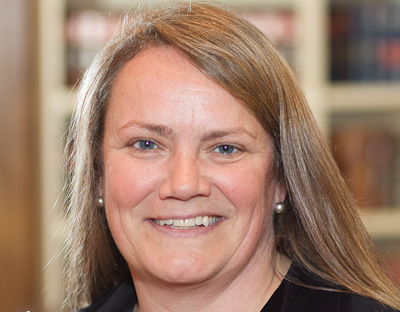By Jeremy Appel, Local Journalism Initiative Reporter
(ANNews) – The federal government has appointed Kahnawake lawyer Kimberley Murray as a special interlocutor to assist in the search for unmarked graves at the sites of former residential schools.
Murray is the former executive director of the Truth and Reconciliation Commission, Ontario’s first assistant deputy attorney general for Aboriginal justice and led a group investigating unmarked graves at the Mohawk Institute, a former residential school near Brantford, Ont.
She told APTN News she expects her role to be challenging.
“It was not an easy decision to take this role as special interlocutor,” Murray says. “But after consulting with survivors, elders, my family and community members, I’ve committed to doing this work with humility, with respect, honesty and courage.”
Part of Murray’s role is to help Indigenous communities in collecting data from unmarked grave sites and assist in resolving jurisdictional disputes if they arise.
However, she will not have the power to pursue criminal prosecutions. Justice Minister David Lametti said appointing a prosecutor is not in his jurisdiction.
“I will be honest and say that the accountability and the lack of prosecutions is something survivors at Indigenous communities, at Indigenous leadership, have pointed out time and time again and with reason,” he says. “And it is something that we need to correct.
“In my role as attorney general, at the federal level, I can’t appoint a special prosecutor.”
Murray will nonetheless work alongside communities to determine if they want to pursue criminal prosecution.
“I expect when I go to communities and meet with survivors and leadership, that I will hear about these conversations. About how they’ve struggled with what to do, how to have prosecution,” she says.
“Do we invite the police in? What police – RCMP, provincial police, municipal police, First Nations police? And there are pros and cons to all of those that I’ve heard (from) talking to survivors in the last year.”
Chief Cadmus Delorme of Cowessess First Nation, where 751 likely unmarked graves were found in June 2021, told APTN that his community’s number one priority is attaching names to the gravesites, but that it will also work with Murray to ensure any evidence is preserved.
“This position will make sure that Cowessess, if there is any criminal activity, we are making our site like a criminal site,” he says. “We are making sure that everyone on our technical teams gathers every piece of evidence. We can’t go to the local RCMP because what are we going to show them?”
In a statement, the First Nations Leadership Council (FNLC) applauded Murray’s appointment, but expressed concern about her limited mandate, namely the lack of prosecutorial powers.
“The FNLC is concerned that the current mandate for the Special Interlocutor is short-sighted
and limited in scope. This mandate must include an international and human rights legal
framework, be built upon the UN Declaration on the Rights of Indigenous Peoples, and uphold
the highest standards, Protocols, and conventions involving missing persons and genocide to
address the severity of crimes that have been committed at former Residential Schools across Canada,” said Cheryl Casimer, the First Nations Summit Political Executive.
Regional Chief Terry Teegee said a special prosecutor must be appointed “as an opportunity for serious, comprehensive action and amount to real change.”
Union of BC Indian Chiefs president Grand Chief Stewart Phillip said the Canadian government must acknowledge the reality that residential schools were part of a “systematic state-sponsored genocide.”
“While they failed miserably in their pursuit of forced assimilation, those who perpetrated these crimes must be held to account and brought to justice with the full force of domestic and international law through nothing less than rigorous independent investigations,” Phillip said.
Murray officially begins her two-year term on June 14, with a $10.4-million budget allocated to her position.



Be the first to comment on "Ottawa appoints special interlocutor for residential school gravesites"